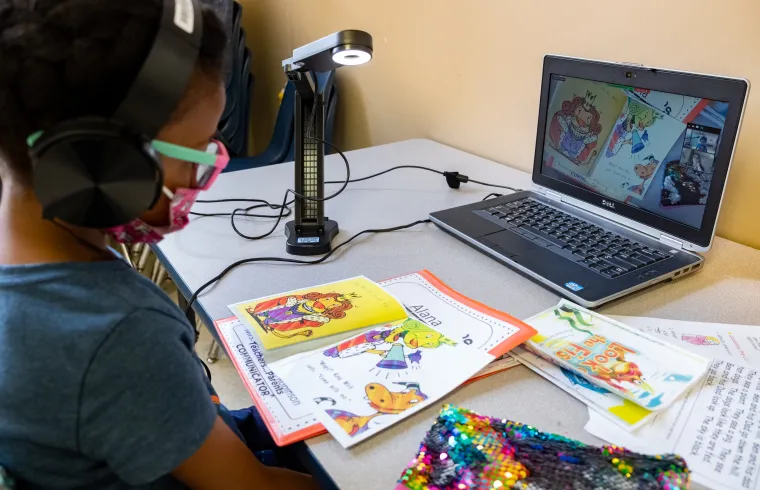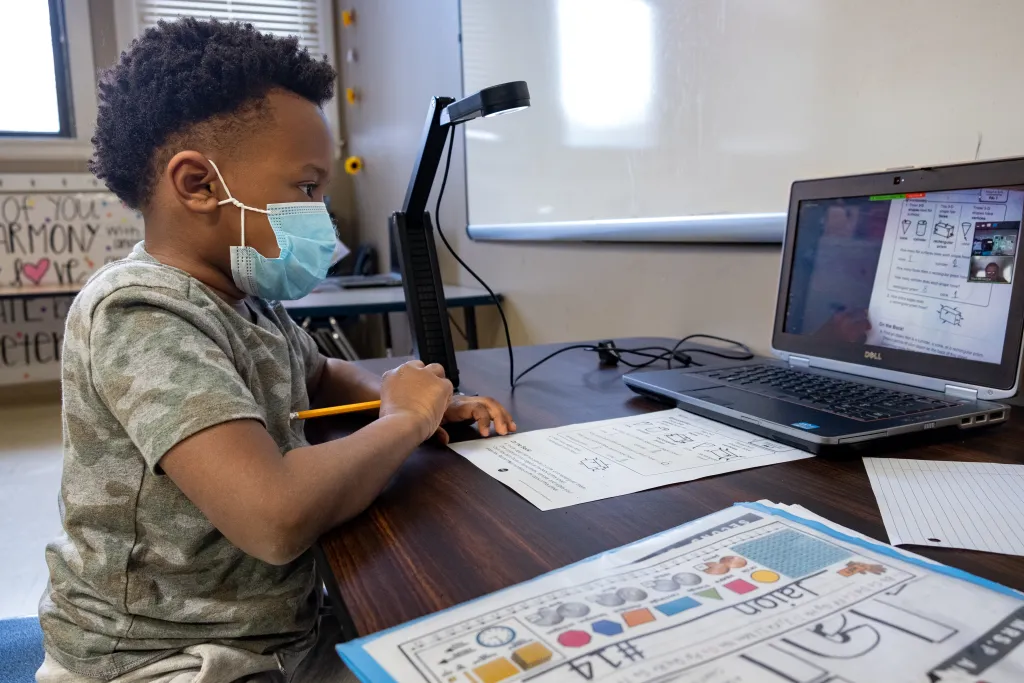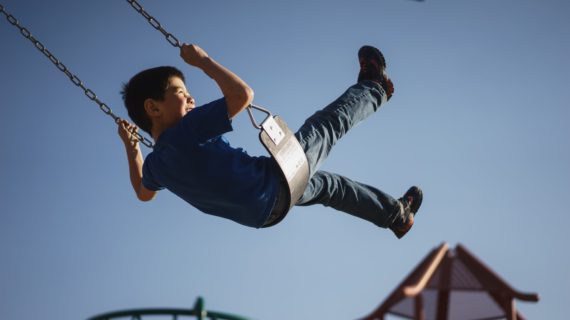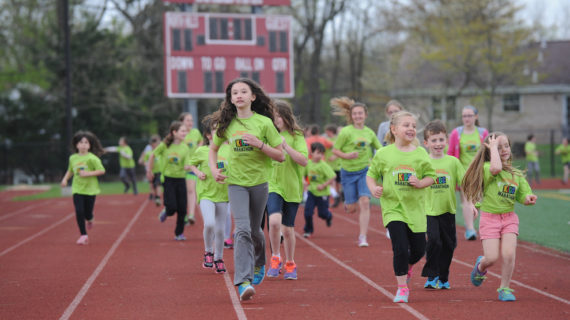
Student-teachers and K-12 students help each other close pandemic learning gaps
This investigative story on pandemic learning gaps was reported and published by our partners at PINJ.
Jaion Pollard, 7, stepped away from his laptop at The Pittsburgh Project’s Northside after-school program, raised his hands in the air and danced. He had just provided his tutor with the correct answer to a homework problem.
On the laptop screen, his after-school tutor, Mckenzie Taylor, a student-teacher from Carlow University, shared in his celebration with a smile.
Jaion, a second-grade student at Manchester Academic Charter School, and Taylor have been paired this winter and spring in a virtual relationship that helps Jaion catch up on learning and academic skills he missed during the COVID-19 pandemic. Their partnership also provides Taylor with one-on-one and small group tutoring experience she stood to miss out on because of pandemic school closures and visitor limits.
Jaion might not understand the complexities of pandemic learning loss, but he knows that it’s “fun” to work with “Miss Mckenzie” and that “she is nice.”

The tutoring program that connected the duo was designed by ASSET Inc. to provide “high-dosage” tutoring to students in grades K-12 in under-resourced neighborhoods and to give student-teachers an opportunity to make up for hours of hands-on learning time they lost during the pandemic. High-dosage tutoring involves meeting one-on-one or in very small groups with students three times per week.
A national analysis done by the Northwest Evaluation Association, a nonprofit education organization and testing company, showed that students in grades 3-8 returned to classes last fall nine to 11 percentage points behind in math and three to seven percentage points behind in reading. The results were worse for Black, brown and low-income students.
Locally, the Pittsburgh Institute for Nonprofit Journalism reported that state test scores for the 2020-2021 school year, released by the state Department of Education in early March, showed proficiency rates in English language arts, math and science were down significantly across the Pittsburgh Public Schools. In some cases, the declines were between 20 to 30 percentage points.
“There are two sets of learners affected by the pandemic. You have your K-12 students and the teachers who are in training. We were watching cohort after cohort of teachers not getting the experience they would normally have,” said Sarah Toulouse, executive director of ASSET Inc, which created the virtual tutoring program.
Called PALS, which stands for Partnerships to Advance Learning in STEM, the tutoring project is funded through grants from the Heinz Endowments and the Pittsburgh Foundation. Though it is STEM-focused, tutors work with students in all subjects.
PALS is currently operating through three out-of-school-time providers that serve the Northside, Lincoln-Larimer and Sheraden neighborhoods. In addition to the Pittsburgh Project, they are Mt. Ararat Community Activity Center and HOPE for Tomorrow. ASSET provides equipment, including laptops, document cameras, headphones and wifi hotspots, if it is not available at the afterschool agencies.
…





